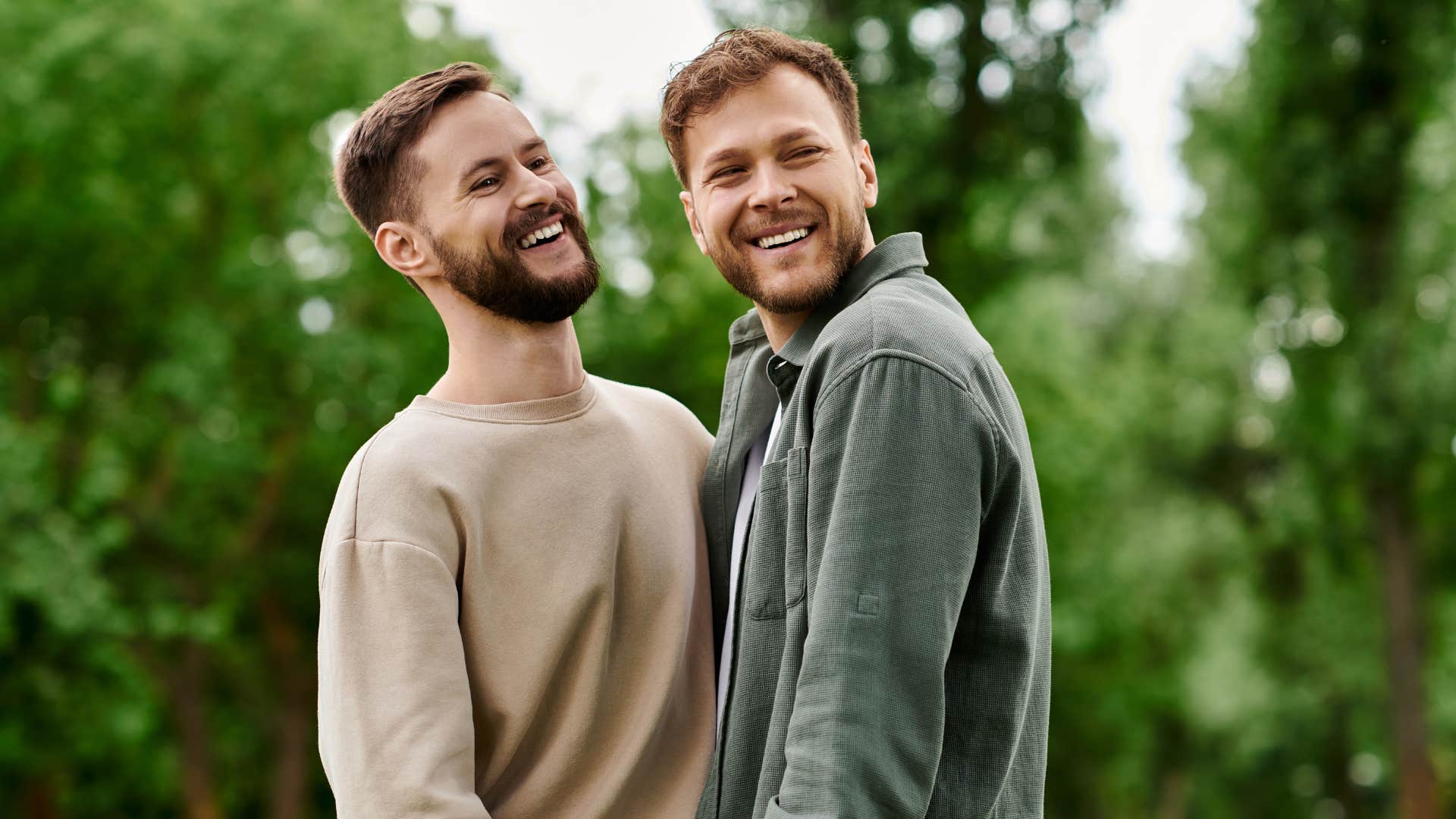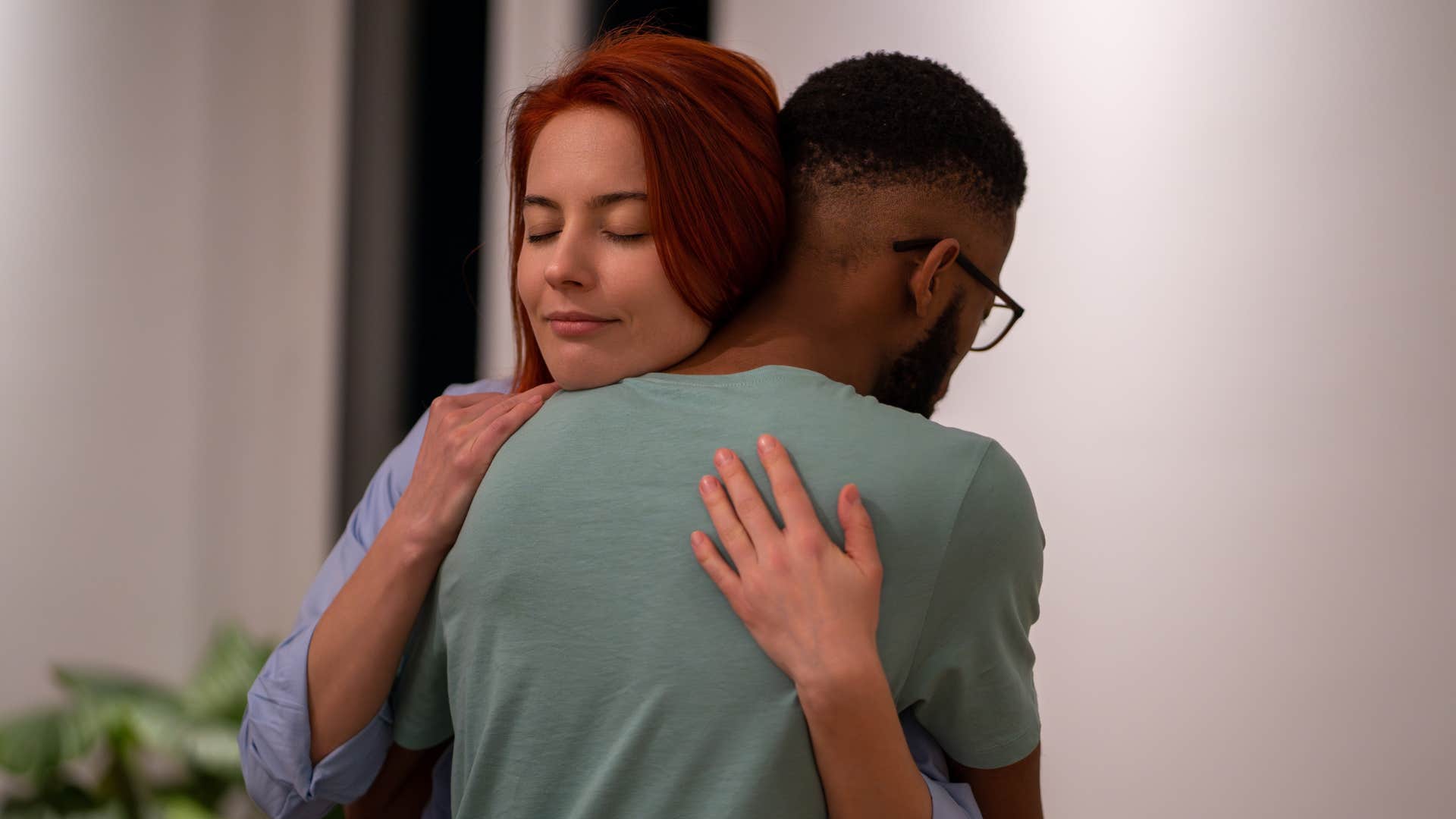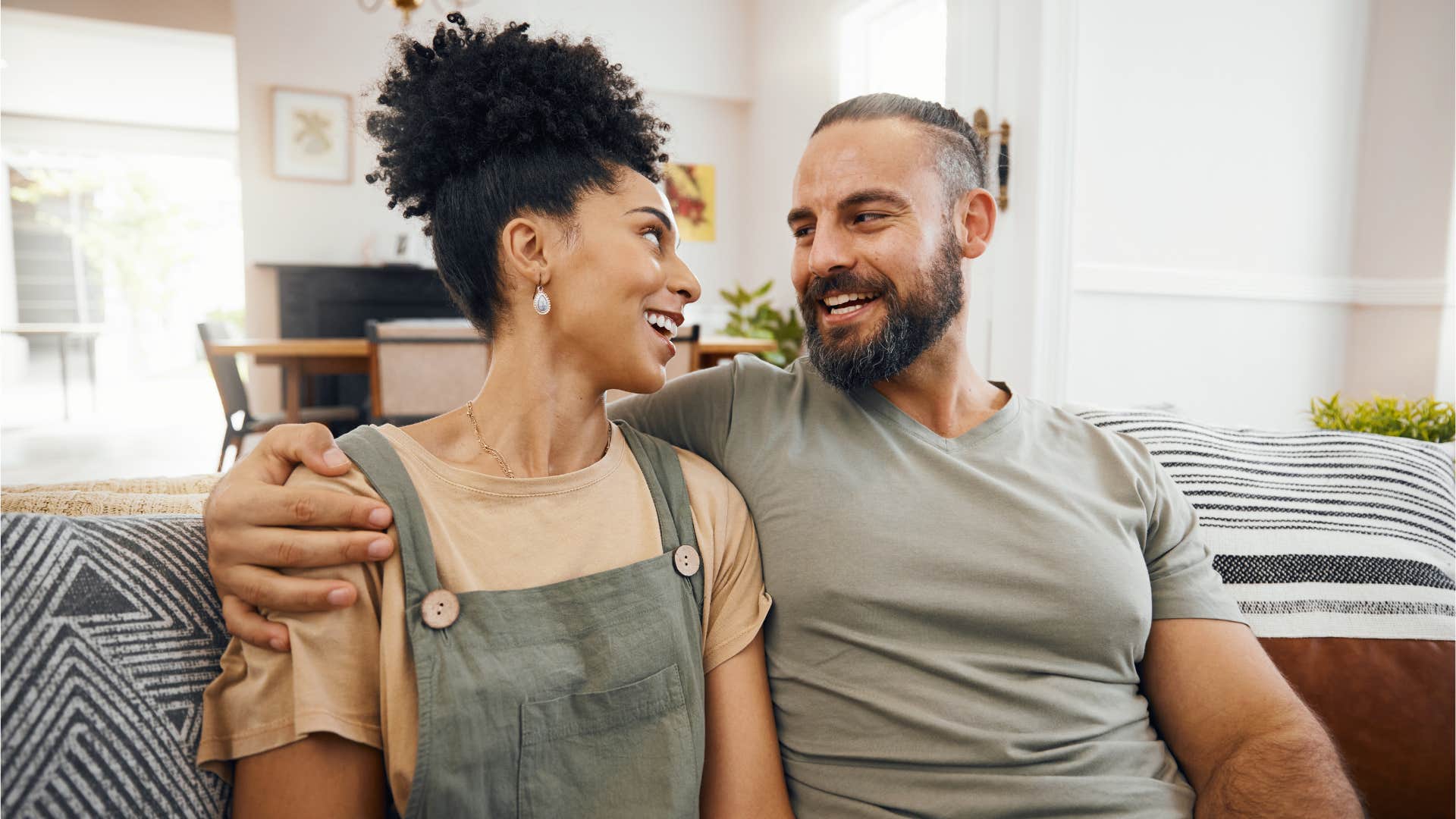11 'Romantic' Phrases Couples Use When Their Relationship Is Actually Bad
The hidden warning signs that come with a few seemingly sweet words.
 Sjale | Canva
Sjale | Canva In the world of love, language is especially important. The words we use to express affection can either nurture intimacy or mask dysfunction. On the surface, traditionally romantic phrases appear loving, devoted, effortlessly intuitive, supportive, and honest. Yet certain phrases used romantically are warning signs.
These terms are incredibly common, and aren't intended to be negative, but they can still serve as a warning sign that a relationship is headed for trouble — even if it's years down the line.
Here are 11 'romantic' phrases couples use when their relationship is actually bad:
1. 'You're the only person I could ever love'
 PeopleImages.com - Yuri A via Shutterstock
PeopleImages.com - Yuri A via Shutterstock
This may sound like the ultimate devotion. But this phrase can hint at emotional dependency or even a fear of abandonment.
It can also be a dishonest way to keep the peace. After all, women often crave connection, while men value autonomy. If one partner becomes the sole source of love or validation, it’s a sign the balance is off.
When the balance is off, people may feel the need to be dishonest ot keep the peace. A 2013 study tasked couples to document how many times they used "deceptive attachment" with their partners.
Here's what the study authors found: "Results indicate that participants lied about their own feelings, feelings about their partners, or feelings about the situation ... Motives for the deception included face-saving, conflict management/avoidance, and emotion management."
Regardless of the "why", this type of extreme language is not accurate, and that can set couples up for trouble.
2. 'I wouldn't survive without you'
 PeopleImages.com - Yuri A via Shutterstock
PeopleImages.com - Yuri A via Shutterstock
This phrase isn't about romance, it’s about enmeshment, which happens when people feel their very survival is tied to the other. As The Gottman Institute explains, enmeshed people feel, "I exist because you do." Soon enough, enmeshed people lose their sense of self.
Healthy couples are interdependent, not codependent. A woman who hears this might feel pressured to carry the emotional weight of both people, while a man might say it to avoid personal responsibility for his happiness.
3. 'True love is supposed to be easy'
 WESTOCK PRODUCTIONS via Shutterstock
WESTOCK PRODUCTIONS via Shutterstock
A man might say this when conflict arises, expecting love to come without effort. Men and women communicate, cope, and reconnect differently. Love isn’t effortless, it’s intentional. Expecting it to be “easy” often means avoiding the emotional labor real intimacy requires.
The Institute for Family Studies reports that "More than half of married Americans (ages 25–50) say they have thought about divorce at some point." This shows that true love will not always be easy, but though times do not necessarily have to end a relationship. In fact, fighting together for your marriage to survive can bring couples closer together!
4. 'I always know how you’re feeling'
 LightField Studios via Shutterstock
LightField Studios via Shutterstock
It sounds intuitive and empathetic, but this can be a red flag for poor boundaries. No one can always know another's inner world, and assuming so can block honest communication.
Often, this phrase gets used to avoid tough conversations: “I already know, so we don’t need to talk about it.”
To grow connection, it's better to use an open-ended phrase like, "If I had to guess, I bet you feel [insert feeling] right now. Is that correct or is it something else?" This shows that you know your partner well without boxing them into an assigned role or feeling, and invites open communication.
5. 'I just want you to take care of me'
 TimeImage Production via Shutterstock
TimeImage Production via Shutterstock
This is often said by women who are influenced by a deep desire to feel protected and supported, and this isn't strange behavior, given traditions in our society. Often, women seek reassurance and safety, but if this phrase implies helplessness or abdication of personal agency, it’s no longer romantic but regressive.
"Prolonged deprivation of personal control induces cognitive, motivational, and affective impairments that can lead to learned helplessness syndrome," explained a 2021 study. In other words, this role can self-perpetuate and get worse.
Love shouldn't replace self-responsibility and rarely can be sustained for long.
6. 'I can't be happy if you're not happy'
 Ground Picture via Shutterstock
Ground Picture via Shutterstock
This sounds noble but reveals a boundary blur. Love doesn’t mean emotional fusion.
Women often feel compelled to nurture, while men may want to fix problems quickly. This phrase usually signals that one partner is taking on too much responsibility for the other’s emotions, leading to burnout and resentment.
This resentment doesn't just come from the person who "needs" the other person to be happy. It's also unfair to the person who is the object of this connection. No person should be expected to be happy for the benefit of any other adult.
7. 'You complete me'
 Connect Images - Legacy via Shutterstock
Connect Images - Legacy via Shutterstock
Jerry McGuire made it iconic, but it’s dangerously misleading. This phrase, implying that one person is incomplete without the other, conveys a message rooted in lack rather than abundance.
Generally, men thrive when they feel needed, but not when they’re expected to complete their partner. Women flourish when they feel heard, not when they’re treated like a missing puzzle piece.
8. 'I know what’s best for you'
 LightField Studios via Shutterstock
LightField Studios via Shutterstock
Good intentions aside, this is a controlling phrase in disguise. It assumes superiority and erodes mutual respect.
Men tend to offer unsolicited solutions, thinking it’s helpful. But to a woman, this might feel dismissive or paternalistic, especially when she just wants empathy, not answers.
This can also go the other way, with a woman assuming a man wants to be cared for, almost like a mother. In reality, a healthy adult relationship doesn't have one person who assumes a paternal or maternal role.
9. 'We never need anyone else'
 DimaBerlin via Shutterstock
DimaBerlin via Shutterstock
There's been a lot of conversation recently about the loneliness epidemic and its effect on men. Too often, men find themselves without close friends and confidants, and that may make them overly dependant upon their wives or girlfriends.
According to Berkeley's Greater Good foundation, "a recent American Survey report, [found that] men have fewer social ties overall than they used to, with only 27% of men in 2021 saying they had at least six close friends compared to 55% in 1990. This suggests men may be suffering a 'friendship recession' that is likely affecting their health and happiness."
When men let their partners be the sole source of support, it becomes much more difficult for their partners to be nurturing. Romantic exclusivity is lovely, but isolation is not. Individual growth and support systems outside the couple are important. When partners become each other's only emotional outlet, their world shrinks, and so does their resilience.
10. 'We never fight, and that means we’re perfect'
 PeopleImages.com - Yuri A via Shutterstock
PeopleImages.com - Yuri A via Shutterstock
Too often, we idealize relationships where people never fight. In reality, those couples rarely last.
That's because no fights might means no honesty. Men may withdraw from conflict to maintain peace, while women may suppress their needs to avoid appearing “too emotional” or naggy. Real connection involves occasional disagreement, which allows for negotiation, compromise, and deeper understanding.
11. 'I feel responsible for your happiness'
 Inside Creative House via Shutterstock
Inside Creative House via Shutterstock
This is one of the most damaging beliefs that can hide behind romantic phrasing. Taking responsibility for your partner’s emotions might seem noble, but it’s unsustainable. Each person must manage their emotional state. Support is beautiful while responsibility is burdensome.
The deepest connection comes from honoring each other's independence and not blurring into one fused identity. When we use language that romanticizes codependence, we’re not strengthening love. We’re avoiding the work of communication, boundaries, and emotional maturity.
Real intimacy isn’t built on the aspirational phrasing from problematic poets of the past declaring their love.. It’s built on knowing where your emotions end and your partner’s emotions begin, and choosing, every day, to meet in the space between.
Richard Drobnick, LCSW, DCSW, is a therapist and the Director at Mars & Venus Counseling Center in Bergen County and Morris County, New Jersey.

